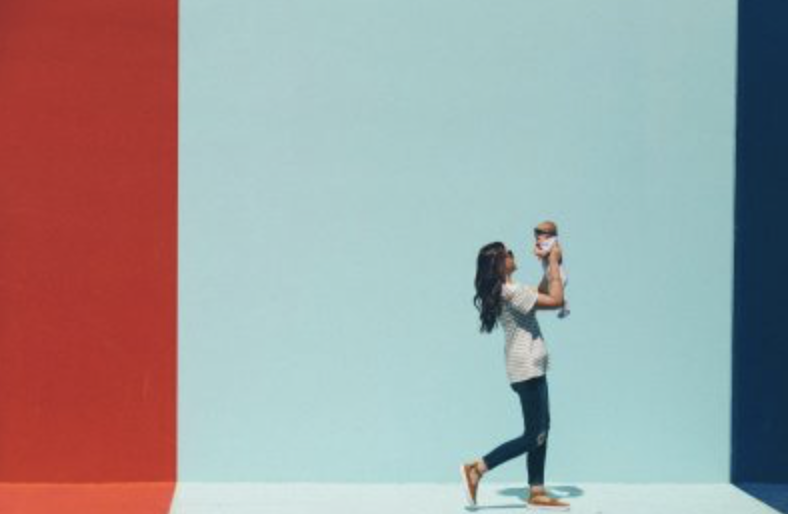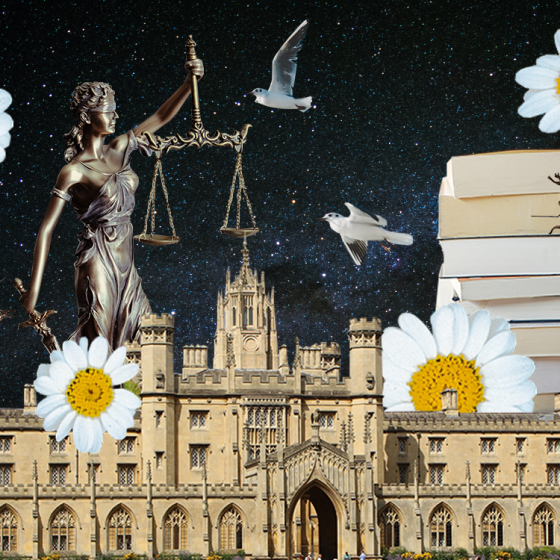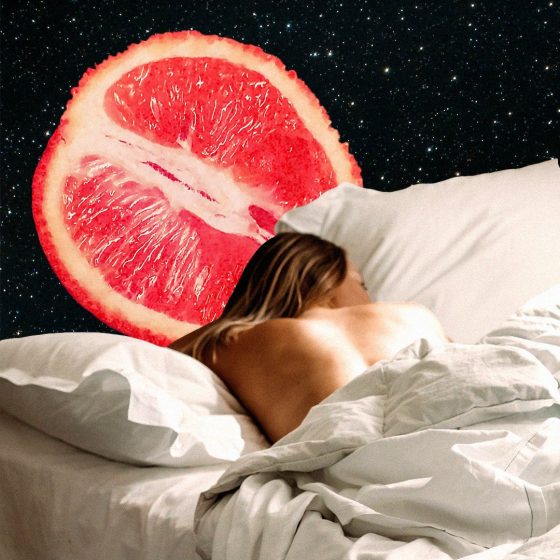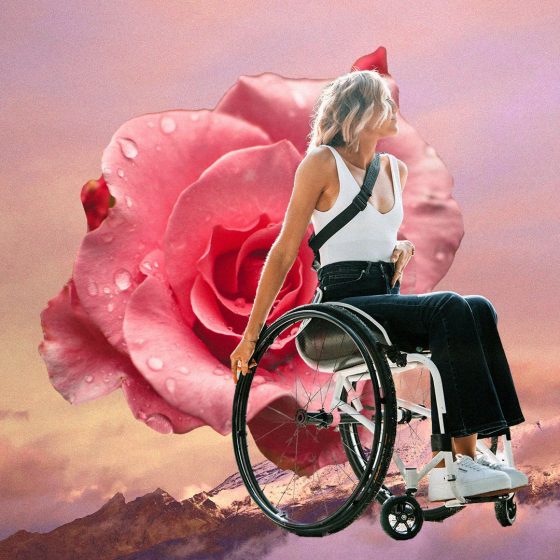“When my friends tell me they’re pregnant, I still don’t know if it’s good news,” my friend, who like me isn’t a mother, admits as we’re having a drink, discussing the subject that consumes most of my headspace – will I? Won’t I?
Sex, for me, has never been about baby-making. It’s been about pleasure and connection, condoms and the coil. I was so scared of becoming pregnant during my 20s, I took the morning after pill on occasions I probably didn’t need it. Now I am 36 and married (to a man), the narrative has changed, the expectations have shifted, the question now is “when are you going to have a baby?” A question filled with all sorts of assumptions. Pregnancy announcements aren’t met with, “what are you going to do?” Instead there’s a flurry of congratulations and balloon emojis on Instagram. When did I shift from actively avoiding pregnancy to wondering if I should start trying for it?
I got married three years ago. What followed was a barrage of, mostly, well-meaning inquisitions, from friends, relatives, occasional strangers. At a baby naming celebration the other week, as I cradled the child in my arms, there were cries of: “Oh! Look how much she wants a baby. Give her one, James!” Like a woman can’t hold a babe in her arms without wanting to kidnap it before her ovaries explode. (When my husband James held said baby, he did not get the same reaction.)
“Is motherhood really optional if you’re a perfectly normal woman married to a perfectly normal man?” Questions Celestial in An American Marriage by Tayari Jones. And I feel this too. Caught up in expectation, spurred on by the ticking of my biological clock – because I do feel that tick, I brood over babies in a way that would make my 20-year-old self shudder – a couple of months after I got married, I got my coil taken out. I’d been on contraception of some kind for my entire baby-making years, having been put on the pill at 14 due to heavy periods, but now I wanted real periods, to get my body “baby ready.”
But when I stopped to truly think about it, did I really I want that baby? I mean, that baby is going to grow into a fully-grown human being and occupy this crazy world we live? Maisie, 27, feels this turmoil too. “The state of the environment is my main motivator for not birthing a baby,” she tells me. “The world can’t cope with everyone having children. It makes me sad that other people don’t consider this too.” Maisie and I aren’t alone in this kind of existential dread. Blythe Pepino, who is 33, set up Birth Strike, an activist group whose members say they will not have children until climate change ends. “It is not as if I have made a choice NOT to have children rather than that, in so much love for the child who might be born, I cannot even bring within myself the creative energies and attitudes and impetus that are needed to conceive that child.” laments one of their recent Twitter threads.
The reasons are varied, but the truth is that the proportion of women not having children has doubled in a generation. And the average age of first time mums in the UK is now 30 – compared with 27.2 years in 2005. These stats were revealed in 2013, and what followed was a series of headlines to vilanise those women who choose not to have children: “Louise is one of a new breed of middle-class women who, quite simply, consider themselves too clever to have children.” wrote Antonia Hoyle for The Mail on Sunday in an opinion piece with the provocative headline: ‘The women who think they’re too clever to have babies’.
Why must a woman’s choice be analyzed by others? Women without babies become tragic figures, the assumption that she is without something she desired. Maybe she was too focused on her career or she couldn’t have them? Can a woman simply not want to be a mother? The term “childless” is rarely attributed to a man. At first I wondered if the term “childfree” were better, but is not not merely another way to put a woman in a box: “mother”, “childless”, “childfree”, does it matter? Must a woman be defined by the children she does or doesn’t bear? Although it comes from a well-meaning place, I freeze a little when people tell me I would make a really “good mother”. Doesn’t that just mean I am a nice human being? Must that be defined in terms of my potential children?
The story is different for men. When I hear friends say that their husband/partner/boyfriend is “babysitting” tonight, I want to scream that it’s their child too. Emily, who’s also 36, agrees. “I resent the fact that the burden of childcare falls on women – even in progressive relationships – because of the biology of it all plus society’s expectations and how we are coded to behave,” she tells me. “I don’t want any more stress and responsibility. The job of ‘Dad’ sounds great. I might want to be a parent if I could be Dad.” Emily sites the shocking statistics revealed in Invisible Women a World Designed for Men by Caroline Criado Perez: “Globally, 75% of unpaid work is done by women, who spend between three and six hours on it compared to men’s average of thirty minutes to two hours.”
Women without children are often seen as selfish. But is choosing to have a baby more so? Is it a little arrogant to think that the world needs a human that is half me and half my husband? Of course, there is a part of me that wants to see what kind of baby we might make, but for 30-year-old Lizzie the risks were just too high. “I was sterilised at 27 by choice,” she tells me. “With my poor genetics, I can’t guarantee that my child will have the best of everything and be the happiest and healthiest it could be. I’m not enough of a narcissist to think that the world needs another one of me, 3D printed inside my womb and released into the world.”
I’ve always maintained that you regret the things you don’t do more, but is motherhood the exception? I feel that 36 years old is such a precarious age to be. I know myself in a way that I didn’t during my 20s, yet I also feel that my choices are gradually being taken away. Would it be easier if fate decided for me? “I was 26 when I got married,” Sally, who is now 40, tells me. “We hadn’t used any contraception for a year before that as we were happy to have a baby at some point. After a year, we went to the GP who referred us to the fertility clinic. Tests came back inconclusive. We self-funded three rounds of IVF within a six-month period, all unsuccessful. From a young age, I was maternal but I have no feelings of regret, if anything I wonder how happy I would have been should things have worked out differently.”
When I look at old family photos, I feel a sense of nostalgia, part of me wants to carry on our family, I mean what happens after my sister and I? Neither of us have children yet. And I would love to replicate the relationship I have with my own mother, but there is no guarantee is there? I am aware that I write this from a position of deep privilege, I have a choice and I know how evocative that is for those who do not. Now, I must untangle what I actually want from my broody hormones and the narrative we are still fed – be gone menstrual cycle Facebook ads. It’s hard to choose a different path from the one that so many people place much of life’s meaning on. Whatever I decide is not an affront on anyone else, but the dialogue surrounding motherhood does need to change, shift with the times. Perhaps when our choices aren’t picked apart, they will be easier to make.









